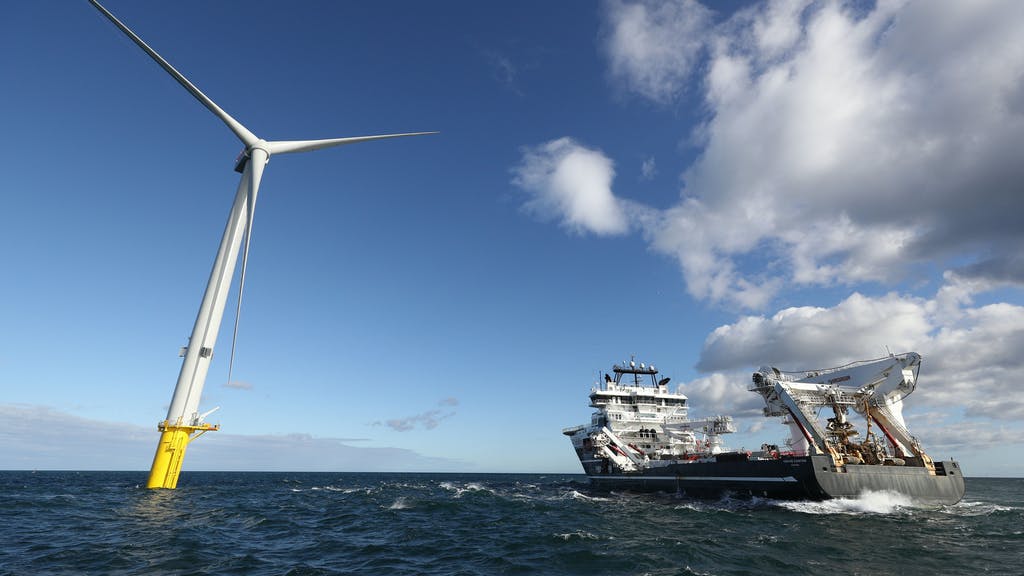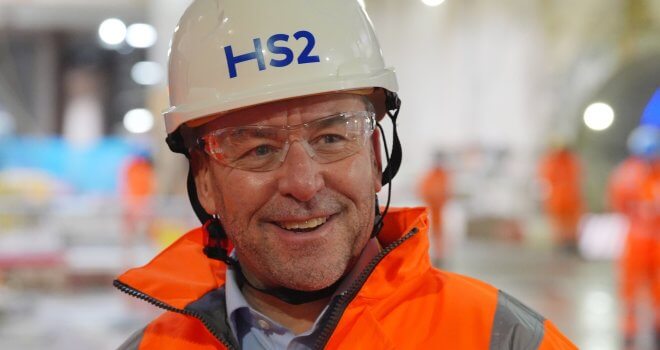Britain’s Tax Take Risks Blowing Green Energy Off Target

A cap on revenue and the lack of the kind of incentives offered to oil explorers are blocking the development of renewable energy in Britain, say industry officials who are pressing for changes ahead of this week’s budget.
The British government has set targets for major increases in wind generation, for instance, as it seeks to meet a goal of net zero emissions by 2050 and to become more independent of imported energy following the supply disruption caused by Russia’s invasion of Ukraine.
Representatives of the renewable energy sector say those goals could be missed without policy changes, especially as other countries are doing more to attract investment in green power.
Among the most contentious issues is Britain’s Electricity Generator Levy (EGL), which the government implemented from the start of this year to combat high energy prices, and which the industry says is a “de facto windfall tax”.
Rod Wood, managing director at wind energy developer Community Wind Power, is among those seeking changes to the EGL in Britain’s March 15 budget.
“The taxation (EGL) is going to kibosh renewable targets the UK has set,” he said.
Specifically, he wants it to include an investment allowance like the one oil and gas companies receive under their equivalent Energy Profits Levy (EPL).
The EPL includes an investment incentive that means oil and gas firms can offset from their tax bill 91.40 pounds in every 100 pounds spent on new production.
British government targets include increasing offshore wind capacity to 50 gigawatts (GW) from around 14 GW now.
Wood said without tax changes, his company would be forced to halt development of three onshore Scottish projects, totalling 1.2 GW, which by 2025 could be generating enough power for more than a million homes.
“When you look at how much costs have gone up in the UK versus stimulus packages on offer in the U.S., it’s not hard to see anyone who can will be relocating business there,” he said.
U.S. President Joe Biden’s administration last year signed into law the Inflation Reduction Act, which delivers a support package for clean technology worth $370 billion.
INFLATION, SUPPLY CHAINS, INTEREST RATES
Other developers say the combination of levies, high energy prices, supply chain bottlenecks, inflation and interest rate rises means their projects are under threat.
Denmark’s Orsted last week said its Hornsea 3 project in the North Sea, which at around 3 GW would be the world’s largest windfarm when built, could be paused unless it gets support such as tax breaks because costs have surged.
Another major project is the Vattenfall group’s Norfolk Offshore Wind Zone.
Rob Anderson, its project director, said the British government “must show its support for the sector in next week’s budget through capital allowances”.
Under the EGL, a 45% tax on low-carbon power generators applies to revenue on power generation at an aggregate price above 75 pounds ($89) per megawatt hour (MWh).
With wholesale electricity prices around 120 pounds/MWh, the level at which the tax kicks in is too low, Wood said, citing more generous levies in Europe.
The European Commission has set a revenue cap on electricity companies, requiring them to hand over any excess revenue to national governments they get for selling their non-gas generated power over 180 euros ($190)/MWh.
OIL AND GAS SECTOR UNHAPPY TOO
Oil and gas producers, which have been subject to a windfall tax since May 2022, also want change.
They say the Energy Profit Levy (EPL) windfall tax which last year raised the tax rate to 75%, one of the world’s highest, is shrinking producers’ access to funding.
UK government revenue from oil and gas sector UK government revenue from oil and gas sector https://www.reuters.com/graphics/BRITAIN-OIL/TAX/akpezrnzavr/chart.png
Renewable developers say the oil and gas sector has for years enjoyed tax breaks, while green groups say the sector should no longer be given any incentives given the need to phase out fossil fuel.
The British fossil fuel industry says it is still necessary to invest in the ageing North Sea basin and home-grown fuel is far less polluting than importing oil and gas from distant places where supply might be more easily disrupted.
It also says higher tax rates should kick in only when profits are derived from prices above a yet-to-be-agreed price floor, based on an historic average, rather than the entire profit regardless of price as is currently the case.
The industry also wants the tax to apply to realised prices, which include hedging results, rather than broader market prices.
Many oil and gas producers hedge large chunks of their output to comply with lenders’ demands, which means their exposure to market price changes is limited.
Finance Minister Jeremy Hunt, in a meeting in December, rebuffed calls from the oil and gas industry to amend the windfall tax.
Further meetings, including in late February with Treasury officials have taken place, but no change was expected from the March 15 budget, two industry sources said, declining to be named.
Meanwhile, Britain’s biggest oil and gas producer Harbour, has announced job cuts and shunned the latest licensing round. TotalEnergies cut its UK investment programme by a quarter.
(Reporting By Susanna Twidale, additional reporting by Shadia Nasralla; editing by Barbara Lewis)




